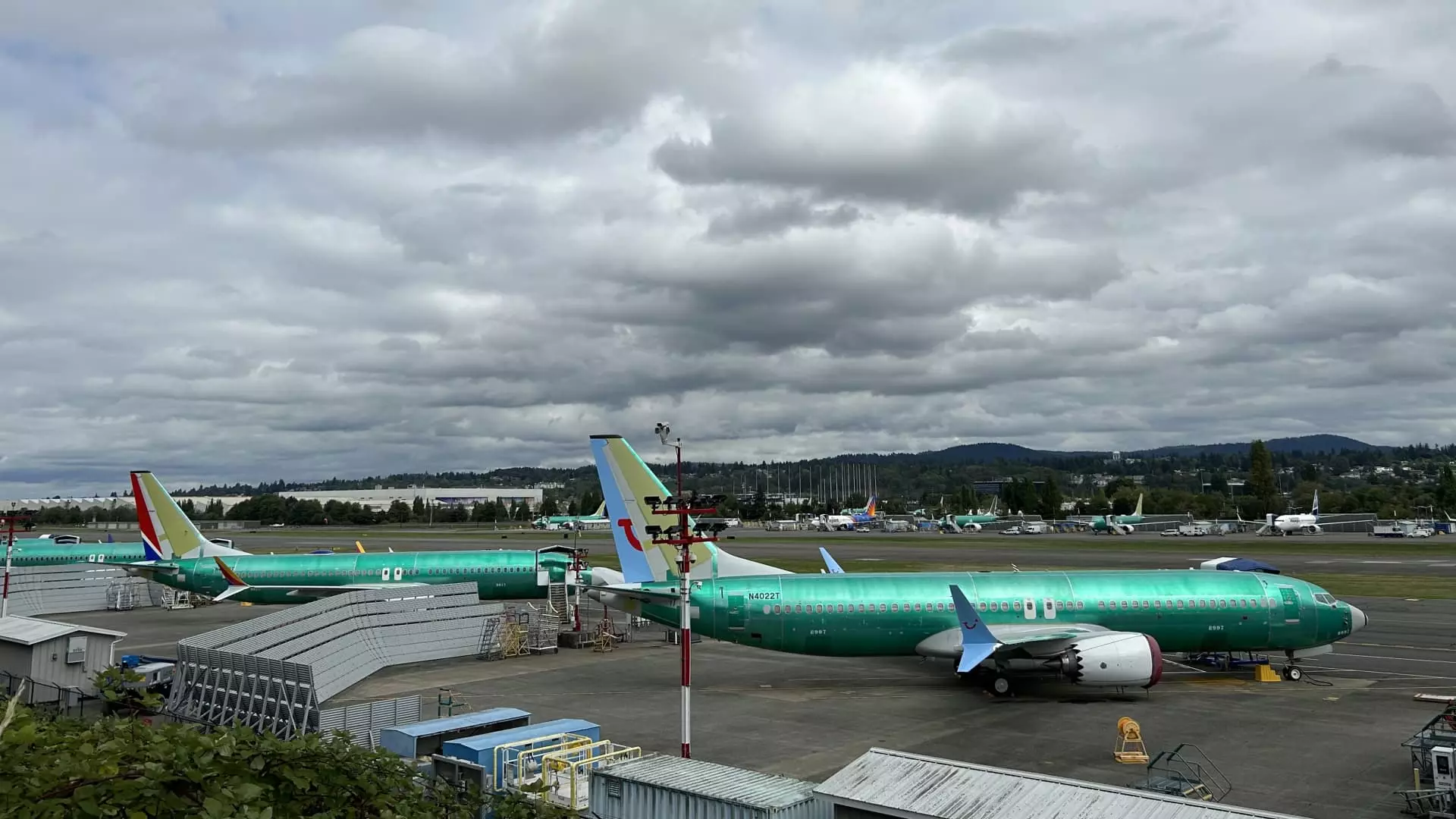In the aerospace sector, 2024 marked a challenging chapter for Boeing as the company reported the delivery of only 348 airplanes, which is a significant drop of nearly one-third compared to the previous year. This decline was predominantly attributed to a series of operational hurdles, including a notable crisis surrounding a midair door panel malfunction and a machinist strike in the fall. These factors not only hampered production but also brought Boeing’s operational capabilities under scrutiny, creating a ripple effect that affected its deliveries significantly.
The ramifications of Boeing’s struggles became apparent in its comparison with Airbus, its main competitor. While Boeing faced setbacks, Airbus successfully delivered 766 jetliners, the most prolific annual output for the European manufacturer since 2019. This dynamic only widened the competitive gap between the two companies. Both giants are confronting similar supply chain challenges, yet Airbus appears to be navigating this turbulent landscape more effectively. The stark difference in performance raises questions about Boeing’s strategy and operational efficiency as it strives to reclaim its leading position in the market.
Delivering airplanes is a critical milestone for manufacturers as it signifies when customers fulfill a significant portion of the payment. Thus, Boeing’s ability to deliver airplanes on time directly influences its financial health. The limited output in 2024 has not only hindered revenue generation but has also exacerbated the shortage of available aircraft in the market, leading to soaring lease rates. Reports from aviation data firm IBA indicate that rental prices are poised to hit unprecedented levels this year, further complicating Boeing’s recovery efforts.
Despite the preceding challenges, December offered a moment of relief for Boeing, as the company announced the delivery of 30 airplanes, marking a restart of production for its highly sought-after 737 Max models. This resurgence followed an eight-week machinist strike, hinting at the potential for stabilization within Boeing’s operations. Furthermore, the company logged 142 gross orders in December alone, including substantial contracts with Turkey’s Pegasus Airlines and flydubai for new 787 aircraft, a positive indicator of market confidence in Boeing’s offerings.
As Boeing approaches a significant investor meeting, scheduled for January 28, anticipation builds around the potential restoration of profitability and production ramp-up plans. The discussions are critical for addressing shareholder concerns and outlining strategies to recuperate from the recent downturns. With a total of 569 gross orders for the year, although overshadowed by Airbus’s figures, there remains a flicker of optimism for Boeing. The aerospace giant faces a pivotal moment, necessitating decisive action to repair its delivery record and enhance operational resilience.
Boeing’s journey through 2024 exemplifies the complexities of the aerospace industry, with challenges influencing competitiveness and profitability. As the company recalibrates its strategies and mend its production processes, it stands at a crossroads that could redefine its trajectory in the years to come.

